Things That Embarrass Me About Being a Comics Fan
Before we begin, I am not an ‘angry fan’. I love comics and rarely feel that I need to defend my enjoyment of them. However, in any medium as diverse as comics, there is bound to be a lot of content that is problematic for some readers. Gratuitous violence bothers some people; others are bothered by the casual sexism. For every comic book there is likely to be at least a small portion of the readers that are put off by something between its covers. I have been reading comics since the 1970’s and there is a great deal about the medium that embarrasses me at times. This is particularly the case when dealing with outsiders.
So here is my ranting, raving list of things that make me cringe about comics or the industry when I’m asked to explain or defend them. Some are old, classic things that are easier to defend because of their age while others are far too new to be excusable.
Insulting the intelligence of readers
I know that comics were created as a children’s reading medium but the industry seems slow to catch on to the fact that kids are no longer their main audience. The over-explaining of things or the meaningless buzzwords used gets on my nerves. At one time there was a need to explain everyone’s powers and attitudes in every single issue but the result really was only to eat up a lot of story space. Back in the day, nearly every issue of Uncanny X-Men had at least one line for every character in an attempt to bring the reader up to speed. (Something like, “Only my ruby-quartz visor can contain my optic blasts.”) You would think all the other X-Men would get tired of it too but since they all said stuff just like that, everyone let it slide. Maybe they all had short term memory issues. (See a little further down for more on this.)
One would think that modern books would be better and most are, Marvel has been using a title/intro page in many books for a while now. Unfortunately, it has become standard practice to assume that anyone picking up a comic has never done so before.
Another thing that annoys me is crappy origin stories. Not only are they annoying, they also insult the intelligence of the readers. I know that we are long out of the Golden and Silver Ages so origins stories are better now, but as a fan of some of the older books I find myself in a position of occasionally having to defend some truly awful stuff. Golden Age speedster the Whizzer getting his powers from a transfusion of mongoose blood is one that I find hard to defend to outsiders. The original Flash breathing in the fumes of hard water is another.
Don’t get me wrong though, there are some spectacularly bad modern origin stories that have come out. Under the heading of ‘too modern to be this stupid’ is Superboy’s origin. He is a clone of a cloned future something or other version of Superman and ???…I give up, not even going to try to explain that one to anybody. It is 2013 and we have decades of science fiction and science fact to draw on but all DC manages to do is make the stupid 90’s version of Superboy even worse?!? (Now, in response to the Superboy fans who are about to take up arms, I actually quite like the Kon-El versions of the last decade or two, but please don’t try to defend the origin to me; it really has become an awful mess.)
Superboy’s tactile telekinesis is another one that sets my teeth on edge. Telekinesis is the ability to move matter mentally. Tactile is something touched or touchable. The obvious contradiction aside, doesn’t that mean that he can move things by touching them? Well, I guess that means I have tactile telekinesis because that’s how I move things too! Suck it, Superboy!
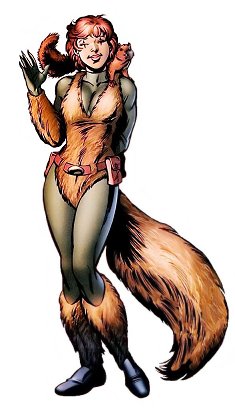 Again, one would assume that the more modern characters would not have this kind of problem but they do. The mere existence of Squirrel Girl got my wife to call “BS” when I mentioned it but I DID win the bet when she claimed I was making the character up. (I didn’t tell her about Monkey Joe). Fortunately characters like this exist now and are tongue-in-cheek comedy relief (Rocket Raccoon and Groot are about to go mainstream!!), but 30 years ago they were almost always taken seriously as characters. Even cool characters like the Silver Surfer require some justification to someone not familiar with them.
Again, one would assume that the more modern characters would not have this kind of problem but they do. The mere existence of Squirrel Girl got my wife to call “BS” when I mentioned it but I DID win the bet when she claimed I was making the character up. (I didn’t tell her about Monkey Joe). Fortunately characters like this exist now and are tongue-in-cheek comedy relief (Rocket Raccoon and Groot are about to go mainstream!!), but 30 years ago they were almost always taken seriously as characters. Even cool characters like the Silver Surfer require some justification to someone not familiar with them.
Kids’ books
I have previously written about ‘all-ages’ comics and I quite like a good all-ages comic. Most mainstream comic titles out there are considered all-ages unless otherwise labeled, but the market for kid’s comics has suffered of late. I am occasionally asked by people with younger kids to recommend a good comic for a young reader. Unfortunately, I am hard pressed to point out something really good. It’s true that there are good young reader’s books out there, it is just hard to find them and you have to slog through a lot of crap to get to them.
Archie is a good example of an all-ages book but it is increasingly pushed aside on the shelf in favor of titles that ignore intelligent storytelling to focus on the lowest common denominator. Basically they tell a lot of fart jokes. While it is strictly my opinion, looking at series like Adventure Time or even some of the Simpsons comics just makes me roll my eyes with disgust at how dumb they are. It is very possible to do a good all-ages book but it seems very difficult to do a book aimed at kids that is any good at all. The dearth of intelligent kids comics just reflects poorly on the industry as a whole.
‘Purty pitchers’
Visual storytelling in comics is a dying art. While there have always been artists better at one style or another, it was in the 1990s that the ‘hot’ artists also became the ones with the least substance to their various styles. Lots of pretty pictures with no real depth or meaning to them. There are today many artists that are great at covers and pin-ups, but not very good at telling a story in pictures.
It is true that not all artists in comics, or any medium are created equal. There are many great ones, and many others that get by. Many slow artists and many fast ones. Anyone that can make a living doing what they love is lucky and comics has to be one of the coolest ways to do that. But the ability to draw a story that flows properly from a purely visual sense is becoming very rare.
If you are not sure exactly sure what I mean, you can ask these questions of any comic as you read it:
- Is following the progression from panel to panel (which panel do I read next?) difficult? (This only applies to the printed book, not digital)
- Is it often hard to tell what is happening in a single panel, whether visually crowded or not?
- Does it seem that many, if not most panels are more interested in a cool picture (cool or dramatic poses-probably like a mini poster) than one that serves the story?
- Would you be unable to catch even a small thread of the story if it weren’t for the words in the book?
If you answered ‘yes’ to any or all of these questions, then the book’s artist needs to work on their storytelling skills (and admittedly, that is a needle even the best storytellers have a hard time threading—drawing comics is not an easy job!).
There was a point where cool shots, splash pages and needlessly over rendered art styles became the norm and even now, as some of these artists have been at it for decades, the storytelling has not improved. Unfortunately, ‘purty pitchers’ sell. An excellent example of this is Jim Lee’s Superman Unchained book. He draws beautifully, but the book itself is as mess visually, and not an enjoyable read. Another artist, and one I absolutely adore, is Stuart Imonen. All New X-Men is an outstanding book with wonderful art, but the panel progression is often inconsistent and hard to follow. This may be because of the move into digital comics platforms, but it still makes the print version a bit confusing.
If you, as a reader, want to improve your visual understanding you can always pick up a copy of Scott McLeod’s amazing book Understanding Comics. But as some examples of great artists that are also great storytellers, you can check out the many works of Wally Wood, John Byrne, Jack Kirby, Steve Ditko, Dave Sim, Harvey Kurtzman, Neal Adams, Alex Toth, Al Williamson, Michael Golden, Will Eisner, John Buscema, John Romita (Sr and Jr), Gene Colan and almost any graduate of the Kubert School working in the medium currently.
The only industry where the product catalog is something you pay for
Some of you out there old enough to remember when the Sears catalog came in the mail, and the excitement created by going to the toy section with a pen to circle the stuff you wanted will understand my frustration at this. Ask any other industry where a product catalog is available directly to the consumer and you will find that none will ask you to pay for it. (May not be 100% true, as some companies –the ones that still actually print them—will charge but that is because they would rather use the online versions.)
It started because the large Previews magazine that we can all get now for a fee used to be free to retailers, but fans did not get them as a general rule. The stores got a copy so they could order from them, but fans had no real access to finding out what was coming from the publishers. At some point Diamond and the few other distributors at the time decided to cut out the middle step and get Previews right to the customer. They quickly realized as the book grew that it was too expensive to produce to just hand out for free. They decided to charge for the book and many stores elected to absorb the cost of the book for their regular customers, but not all stores did.
Now that Diamond is going digital, it is my hope that the charge for these will go away or at least be greatly reduced. It shows the level of addiction and the relative contempt the pushers of the drug that is comics have for the addicts, that they charge for the catalog of the drug. It is a little like paying a fee to walk into your local grocery store for the privilege of looking around.
Obsessive collectors, speculators and negative fans
These are the three classes of person that irritate me in any walk of life, but in comics it is a bigger issue for me as these people are annoying enough to be damaging to the industry.
The Obsessive collectors are those folks you see at the shops and cons that buy like they are grading the Hope Diamond. When they pick up the newest issue of Captain Gratuitous Violence at the shop (every Wednesday exactly 1 minute after the local comic shop opens) they take each issue into the light and look it over so carefully you would think they are buying Action Comics #1. They assume/hope/delude themselves into thinking that any book off the stands has the potential to be the next really valuable comic. I’m sorry but that is simply not true. Nothing printed after the early 1980s is really ever going to be that valuable. When a modern book does spike in value, it is a temporary fad-driven thing and the price WILL drop, usually a lot. Not long ago The Walking Dead #1 spiked into mid four digits. This was driven by the success of the TV show and speculators diving in to make money. They probably feel pretty stupid for paying several hundred dollars for a book I just saw in the store for $200 (A still very inflated price). Back in my day, I remember Fish Police #1 jumping to $75 for no real reason. People snatched it up and now you can buy it for three bucks. Spawn #1? Same thing, it jumped like crazy for a few minutes and is worth nearly cover price now. Don’t even get me started on the stupidity of ‘slabbing’ a book like these. Collectible value is drive by demand AND scarcity. If you only have one of these two, like in the case of the above, the value fluctuates wildly and will angle down far more than it angles up.
I was going to discuss the negative fans. We all know one or two. These are the online haters that troll forums looking for things to be negative about. The problem with discussing this is that it is impossible to do so without becoming negative in the process. So I will simply say that these people embarrass me and I wish they would get something to do that does not detract from my hobby of choice. Weenies!
Purple underpants
If you grew up reading comics in my era, there were many odd things taking shape in comics. One of my favorites was always the purple underpants. The Hulk changed from Bruce Banner, and was wearing purple underpants no matter what he was wearing before. (She Hulk did something similar in her early days, always wearing a torn white shirt once she ‘hulked out’) The toad men in the FF always wore pants despite being semi evolved and living underground. Colossus from the X-Men had a costume that, when he wasn’t metal, had blue fabric covering his legs. But when he changed into metal, the blue would vanish. Fin Fang Foom is another example of the purple undies, played wonderfully in Nextwave. The Silver Surfer had undies, despite not having any junk to cover, if you go by what he wears now. In a more modern book, Atomic Robo, the title character is a robot so why wear clothes at all? (At one point Robo explains he wears pants “because it’s the law.”)
Creators being stupid or bitchy
This is a good way to separate the class acts from the children in adult forms. Gail Simone is a fantastic example of how to handle a problem with the industry. When she was recently ‘fired ‘off Batgirl for no clear reason (the book was a critical and commercial success and it appears DC just wanted to make an arbitrary change at the end of Gail’s contract), she announced it on Twitter stating just that she was sad about it and that was all. She did not whine or complain or call anyone names. She acted like a complete professional. The fans on the other hand, had an absolute fit. Ultimately, the fan outcry saved her and DC relented and gave her the book back. She is almost untouchable now and as I have seen it put, she could probably set Dan DiDio on fire and not lose her job.
On the reverse, there are the creators who act like dicks when they are unhappy about something. Rob Liefeld ‘s recent split with DC comics is a good example. Rob ripped DC and tried his best to burn his bridge behind him. I don’t really find this all that surprising, given that disliking Liefeld for any number of reasons is something of an industry trope these days. It started with his art style and has just snowballed. When Image comics was founded, Liefeld and Todd McFarlane were referred to collectively as “the idiot and the asshole” (you can look into it to decide which is which if you like but I promise it is not worth the effort). Liefeld’s eventual departure from Image was no nicer. There have been lots of big rows between creators and companies and many ultimately ended in the creator eventually doing work for that company again.
Tony Harris had a similar issue with fans when he posted a rant about faux-fans and wannabe cosplay girls. The fan community blasted back and the Twitter war began. The real problem is the new technology allowing people to vent frustrations and opinions instantly to everyone who will listen.
There really does need to be an “are you sure you want to make an ass of yourself?” pop up box when you hit send.
Death in comics
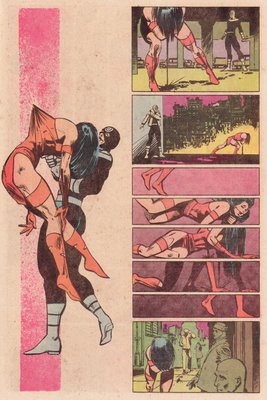
As Peter David is fond of saying, “comics are the only fiction medium where “and he died” is followed by, “and then”. When a character died, it used to be both a big deal, and permanent. Now death in comics is neither. Death is a plot hammer and usually done with the character’s return planned as part of the story.
When Chris Claremont and John Byrne were forced by Jim Shooter’s editorial mandate to kill off Jean Grey in Uncanny X-Men #137, there was actually still a thought that it would last. Of course Jean’s character was called the Phoenix and resurrection was all part of the deal, but she did stay dead for at least a few years.
Now when a marquee character is killed it is a media ‘event’ and a complete joke to anyone who has ever actually read a comic. Captain America dies, everyone knows he is coming back. Superman’s death in the 90s was well handled even though everyone knew he was coming back. Johnny Storm’s recent death (we never actually saw it happen, so why it was considered death, I can’t say) was an outstanding story but again, why is this the only way drama can be introduced?
The Comics Code Authority
One of the darkest times in the industry has to be the Senate committee hearings in the 1950s. Worse however was what came from them. The Comics Code Authority was enacted in the 1950s as a result of the publicity caused when Dr Fredrick Wertham’s book, Seduction of the Innocent, coupled with his testimony before a Senate hearing labeled the content of comic books to be indecent and too strong for kids. The code nearly destroyed the industry and took out many companies. The code all but killed EC Comics but the company saved itself by focusing on magazine format publications like MAD.
The 1950s were a time in the US not all that different for our current time. We were paranoid that our enemies were everywhere, that moral decay was rampant and that our children were all made evil, not by how we raised them, but by the world they were exposed to when our parental backs were turned. Where today America is being ‘destroyed’ by gay marriage, then it was juvenile delinquency and communism. While people turned a blind eye to real problems, just as they do now, they attacked anything that did not fit their idea of normal.
The Comics Code was a symptom of a much larger societal problem or problems. We were and are afraid of almost everything we cannot grasp or that goes against our overblown moral standards. As always happens in these cases, we get censorship and governing bodies designed to prevent us from living our lives in the manner we choose. Book burnings were the norm in the 50s all over the country, today we still have ‘objectionable’ material being removed from stores and libraries to protect those who cannot think for themselves. There will always be people who feel thier moral standard is better than yours, and the code was an attempt to head these people off before they did real damage. Unfortunately, the code did the damage all by itself.
Since the Code happened so long ago, and we have ‘learned’ since then, you might think it will not be an issue again. But then again, that is what we always think right before someone tries to prevent us from reading, seeing or experiencing something that we should be free to have in our lives.
Catchphrases and slogans
To end on a more upbeat and silly note…
There are lots of things that have become just another expected part of comics. I don’t recall the last time I picked up a Wolverine solo book and didn’t see some variation of “I’m the best there is at what I do; but what I do isn’t very nice.” We get it already.
Other catchphrases or tag lines I would really like to see just stop are…
“Only my ruby-quartz visor can contain my optic blasts.”–I never quite understood how this worked. Wouldn’t his optic blasts just push the glasses off his face? They are beams of force after all.
“My psychic knife is the focused totality of my powers.”–Easily the dumbest phrase ever uttered buy a purple-haired British/Asian ninja chick.
“It’s clobberin’ time!” and “the ever-lovin’ blue-eyed Thing”–I think Ben is just crying out to be hugged.
“Hulk SMASH!”–Embarrassing and yet still fun to yell after a hard day at work.
“Imperious Rex!”–Has something to do with Namor’s undersea dog I suppose.
“For honor, for glory, for Asgard!”–For the love of mercy, stop yelling this!
“Flame on!”–This one was actually used as a gay rights slogan briefly.
“Avengers assemble!”–Teaser posters for the film actually made this fun with their, ‘some assembly required” gag.
“My Spider-sense is tingling!”–I think it is an allergic reaction to the spider bite, or maybe an acid flashback.
“Looks like it’s time for Hyperspeed!”–Nexus used this as a way to make light of tough situations and as a jab at stupid catchphrases.
“SHAZAM!”–Not only is this one not going away, they officially changed the name of the character to Shazam. Now we will never be rid of it.
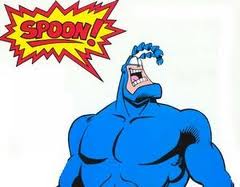 The only one I will NEVER grow tired of is SPOOOOON! If you have never read the The Tick and therefore have no idea what I’m referring to, shame on you.
The only one I will NEVER grow tired of is SPOOOOON! If you have never read the The Tick and therefore have no idea what I’m referring to, shame on you.
I love this stupid medium. Comics are always fun even when they are not all that good. Sometimes though, as I sit in public reading on my tablet or from an actual hard copy, I still find myself a little embarrassed despite comics being a bit more socially acceptable these days. So come sit with me and read, there will be strength and comfort in numbers.
What do you think? Leave a comment.
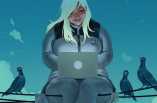
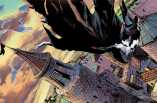

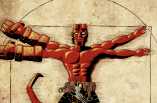
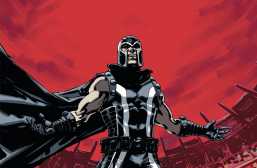
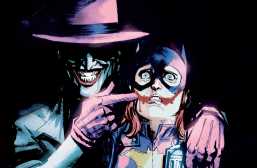

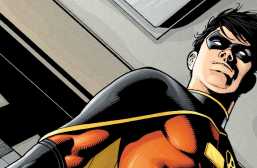

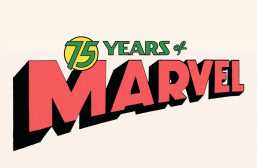
Ugh, I hate how comics will kill off a character only to have them return in a not-so-spectacular way. The first couple times it was shocking and cool, but now it’s just to be expected. I also hate how movies and television do it.
Great! You nailed it with the deaths. Can’t they seriously find other ways to keep us intrigued? It has been done too many times now. Character deaths have no real impact on me.
This does not embarrass me to be a comic lover, but I find it embarrassing for them to not make better choices.
I completely agree with the lack of story telling, I see that happening more and more in a variety of mediums recently. It all seems to be about the aesthetic for people
To all of the above, drama seems to be shifting to sensationalism, and that is sad. It is also damaging to the medium in the long run.
While it has always been that way, it really does seem worse in the last 10 years or so.
I agree about the the whole death thing, over used and seems to have lost its impact… a dead character should stay dead, otherwise the threat of death will not excite a reader.
What has annoyed me is how they have gone some steps back with a character to maintain a status quo… after World war Hulk we went back to dumb hulk… after Spiderman evolved to become closer to a spider and gained new powers such as real webbing and become even stronger… they reverted him back to the spiderman of old…
for me World war Hulk was a mature version of the original hulk, he was the most interesting of any previous incarnation… these are 50 year old characters, don’t let them grow only to revert those years back…
With that said they went the right track with Wolverine, they finally unravelled the enigma, but they done it in an interesting way.
I also enjoyed WWH, and am reading Indestructible Hulk now and enjoying it. Since I have never been a Hulk guy, that is saying something.
I have always been able to avoid the status quo resets for the most part by only reading trades for the last 20 years or so. I can pick and choose arcs recommended to me and get good stories rather than slog through a bunch of sensationalized crap just for the occasional good read.
You can add the depowering of Thor to that list as well…
Why not just set them up with bigger or smarter threats?
Actually, I recall them trying on a few occasions to make the threats bigger, and the problem you run into is exemplified in books like The Authority. The damage and loss of (fictional) life becoomes almost numbing and you quickly fail to register it.
With a smarter threat, you notice the failings of the writer. This is the reason it is hard to find genuinely good sci-fi or mystery compared to the amount of super hero stuff.
Covers. The way the use it in some issues to make it appeal to fans when the cover doesn’t have that much to do with the issue at all. The cover making gremlins gotta go!
I could do a whole article on misleading covers or on theme covers like the gorilla covers of the DC Silver Age.
I loved those stupid things.
The theory was if you want a book to sell better, put a gorilla on the cover. The sad thing was, according to sales figs reviewed a few years after they stopped the trend, they found out they actually DID sell better!
Ha ha Most of these things are the things I LIKE about being a Comic Book enthusiast. But I agree that the inconsistencies definitely get annoying. I like where comic book adaptations are going with this though, so perhaps the industry has more to give yet!
Oh, I still LIKE much of this; it is still a little squirmy for me sometimes!
be proud of yourself thy friend, geeking out is the new thing!! its hot these days!!
I absolutely agree to the points you make, ESPECIALLY the presence of deaths in comics. It’s typically only a matter of time before the character comes back from doom, it’s incredibly desensitizing.
The product catalog point is remotely invalid. I agree with almost every point but this one. In the modern age, where one can hop on the internet and visit a multitude of websites which offer previews of upcoming books, as well as interviews with creators there’s hardly a need for previews catalogs anymore. I usually don’t even see them, save for the ones scattered around on FCBD to garner customer interest. I have read about books before that have never seen the light of day, through creator interviews on websites like comicvine, etc.
The point about death in comics is interesting, and while I’m sure you know about the events of The Death of Superman, I’d like to share a video with you that responds to some of the implications of the Man Of Steel’s return to comics following his death. It’s important, and relevant to that point in your article, because it has created the “he died… and then” world of comics that we know today.
http://www.youtube.com/watch?v=0PlwDbSYicM
The Previews that come out still costs more than it should (meaning any cost at all), and many people(including myself) literally go through page by page to see if there is something I may not have heard about yet. The internet is helpful for many things, but not unless it is something that A) you know to look for already, or B) someone else is already talking about it.
It is unfortunate that we cannot get the complete thing for free like most other industries, particularly now that it is available digitally.
The previews that do come out are clogged with garbage anyway. I wouldn’t ever pay for ones, and because I’ve been reading mostly DC as of late, the only ones I have picked up are Vertigo’s FCBD previews issue. It was hardly worth it, and I don’t think I would do that again.
I google searched “comic books” and the second result I got back was Comic Book Resources. Here is a previews article on that website’s front page: http://www.comicbookresources.com/?page=article&id=50620
Because I am reading more DC than Marvel right now, I went to the DC comics website. Not only is there news available, as is the case on CBR, but under the “comics” tab, I was able to find a list of every comic coming out in both Feb and March. Here http://www.dccomics.com/comics/he-man-and-the-masters-of-the-universe-2013/he-man-and-the-masters-of-the-universe-11 is an example of what the previews page for each book looks like.
I’m sorry, and I don’t mean to call you out, but if someone is interested enough in an industry, to the point where they would want to know about upcoming news, then there’s really not any reason why someone couldn’t discern the websites relevant to comics by themselves.
Actually, I agree. The dedicated reader CAN find all the info they would want. I just cant devote that kind of time, and I suspect there are others (probably in my age demographic)that are not constantly online.
The issue of finding the unknown is still there…I may not generally look for a particular comic from a smaller publisher like IDW, but DO hear about them out in the wild. Previews brings books to my attention that are not from one of the big guys that I might otherwise not notice.
Atomic Robo is a book that is a little hard to find if you mainly read only Marvel and DC, and are only looking for their books. Without previews, I would have never found my favorite book on the stands.
Previews IS full of chum to be sure, but from a ‘one-stop-shopping’ standpoint, there really is no other game in town.
The best solution would be for them to make the mag avail digitally without having to go to your local shop. They were going to but I never checked back to see if it happened. They didn’t want to cut out the LCS, and I see why, but the old model is just not working any more.
Also, CBR IS very helpful. But again, I spend all day in front of a screen, and just plain prefer to unplug in my free time.
I would like to start this out by agreeing with you about catchphrases, ESPECIALLY “It’s clobberin’ time!” This phrase is a good 50% of why it took me so long to finally pick up a Fantastic Four book.
I agree with the majority of your points, but I think the issues with kids’ books go a little bit deeper. One of the problems is quantity: parents come into the shop where I work looking for stuff for their little kids, and I have almost nothing to offer them. If you have a five-year-old son who likes super heroes, you only have about five books to choose from, and even less if your son doesn’t like Batman. This is so frustrating to me, because there are a ridiculously high number of books for adult (not even young adult – just straight adult) readers that are simply not appropriate for children. Younger boys especially love Batman, and parents come in all the time asking me what Batman stuff they can buy for a ten-year-old. Considering one of the latest story arcs for Batman involved the Joker stapling his face back on and kidnapping the entire Bat family, it can be really tough to find a book that isn’t too simplistic or too mature for a young kid.
Another issue that you touched on is what they’re basing the comics off of. The problem isn’t that Adventure Time and My Little Pony and Regular Show are necessarily bad books (the only one I’ve read is MLP, so I can’t speak to the quality of the other two), but the bigger problem, I think, is that it’s mostly adults buying those books. A huge portion of viewers for all of the cartoons that these books are based on are adults; many, if not the majority, of people watching these shows are at least 15, so the “kids’ books” still aren’t really for kids. I know more 20-year-old men that buy Regular Show than kids.
I think you made a lot of great points in here. I couldn’t agree with you more about Previews (Diamond is the world’s most infuriating company) and death in comics, especially. I think a lot of new readers are instantly put off of reading by stuff like this.
MLP is a great book, but I don’t think most of the readers are kids either. Much of the ‘all-ages’ stuff that is popular tends to be licensed stuff, and those kinds of properties are usually well established. This means any built in audience is already past kid age.
This article is great. The points made about impermanent death, quick changes, and catchphrases were spot on. I feel like these bad habits end up making the reader feel like they are picking up the same story for the umpteenth time. Thankfully, there seem to be a few dedicated writers who manage to mostly avoid these issues and present material that is rich in sroty and light on cheese.
This article is great. The points made about impermanent death, quick changes, and catchphrases were spot on. I feel like these bad habits end up making the reader feel like they are picking up the same story for the umpteenth time. Thankfully, there seem to be a few dedicated writers who manage to mostly avoid these issues and present material that is rich in story and light on cheese.
Can some one tell me why most people who bitch about comics never read Invincible? Oh yeah, that is because once you get something good you will defend it to the end. Give me a break.
I’m sorry I never replied to this comment, but allow me to now…
I tried with invincible, but just could never connect with it. Like Kirkman’s other big book, it just didn’t work for me.
I can ABSOLUTELY see why it is as popular as it is with its fans, but it just isn’t my kind of thing.
I’m glad you have a book you are passionate about–right now my only MUST read is Saga now that Rachel Rising is going away, but it has been years since I had a MUST read of my own.
I can’t imagine reading a comic book in public – but only because they take maybe 5 minutes to read. On a tablet, maybe.
Comics are too expensive these days anyway – for that kind of money I’d like something more the size of that Conan “magazine” so that I could see some of that mindblowing art a bit better.
I’m a comic book fan myself. But the thing that really bugs me is every time a new comic book line starts, or a movie has been revealed, or an actor/actress has been cast to play a character, fans immediatly assume they’re gonna suck. They act as though they’ve suddenly developed the ability to see into the future or have time travel and have come back to warn us or some crap. It bugs me that they just hate even though they have no idea. For all we know, the comic might be a best-seller, the upcoming movie might be awesome, the actor/actress nails the role etc. I hate that fans just assume even though they probably have no idea
“It is a little like paying a fee to walk into your local grocery store for the privilege of looking around.”
Careful, that’s Costco’s and Sam’s Club’s business model.
I do think your general point of not insulting reader intelligence has merit: the way things are operating now, it is harmful for reading comprehension (which affects everyone’s reading abilities and ultimately the reading abilities of children).